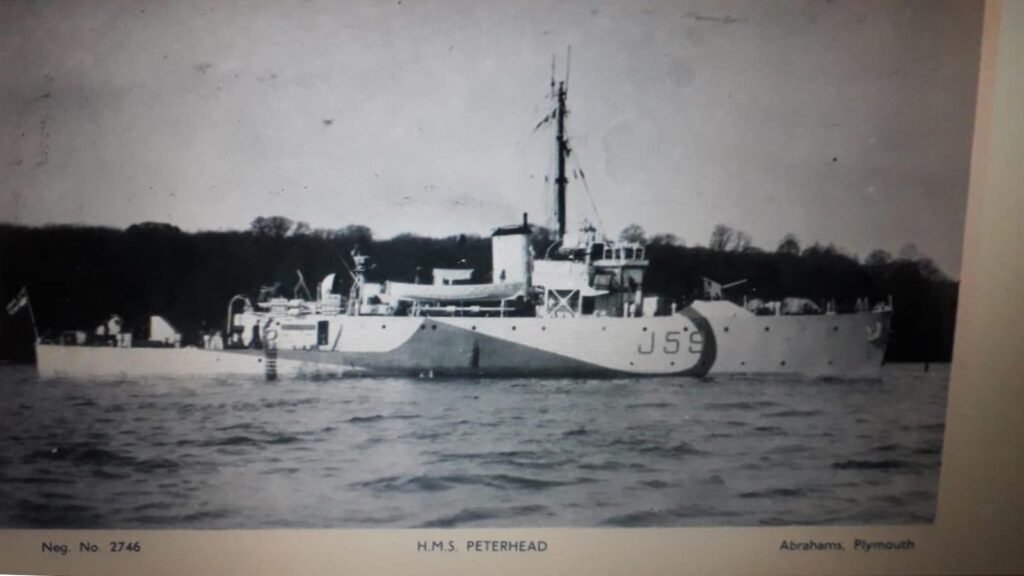New Dales Park Nursery
Dales Park Nursery
Dales Park Nursery
New Peterhead Substation 400kV
HMS Peterhead J59 So far she has been the only ship of the Royal Navy named after the Scottish town of Peterhead.
She was built by Blyth Shipbuilding Company, of Blyth, Northumberland and launched on 31 October 1940.

Under the command of Lt Cdr David Croom-Johnson RNVR (later Lord Justice Croom-Johnson), she took part in Operation Neptune, the assault phase of the invasion of Normandy and was mined off Utah Beach on 8 June 1944.
Croom-Johnson was awarded a Distinguished Service Cross for Peterhead work in Operation Neptune.
Peterhead was declared a total loss, and was sold for scrapping on 1 January 1948. She was broken up at Hayes, of Pembroke in May 1948.

suicide prevention - Liam Yule, North East Suicide Prevention Lead for SAMH-min
As part of efforts to support people in the North East of Scotland, SAMH (Scottish Association for Mental Health) has completed over 200 suicide prevention training sessions over the pandemic to over 2,300 people. SAMH coordinates the North East Suicide Prevention Leadership Group (NESPLG), which brings together suicide prevention expertise from across Aberdeen City, Aberdeenshire, and Moray, with a shared commitment to save lives.
The latest figures from the National Records of Scotland show that more than one person a week lost their life to suicide in Grampian in 2020.
The training has been delivered to people working in key employers and industries in the north, including Police Scotland, Aberdeenshire Council, Aberdeen Council, NHS Grampian, HM Coastguard Grampian & Tayside, oil & gas, education, fishing, and farming.

The introductory sessions aim to provide a grounding for people to feel more informed and confident about having a conversation with someone about suicide and connecting them with appropriate support.
Liam Yule, North East Suicide Prevention Lead for SAMH, said: “We work with incredible partners across the North East of Scotland to provide people from different backgrounds and communities with the skills they need to help someone at risk of suicide.
“Thinking about suicide is very common – in fact, it’s estimated that one person in 20 is thinking about suicide at any one time – so training like this is really valuable for us all. It’s been great to get feedback from participants that many of them think it will be helpful not just in their professional lives, but also in their personal lives.
“As we collectively focus on recovery from the pandemic, we need to encourage people to talk about suicide, to feel able to ask for help, and to feel confident to give help when it’s needed; and Suicide Prevention Day is a great time to shine a light on this.”
The NESPLG works closely with Police Scotland to help officers respond in different scenarios and to provide follow up support to groups affected by suicide. This includes using data to identify at-risk demographics and quickly target them with tailored support and training.

Darren Bruce, who leads the Harm Reduction team in Police Scotland’s North East Division said: “The police have an important role to play in helping prevent suicide. We’ve built a really meaningful and valuable partnership with SAMH and the North East Suicide Prevention Group that allows us to support some of the most at-risk groups in. This could be within a school, an online community, or a geographical region. Working with SAMH means that together, we ensure the right people are getting the right support.
“We’re in the process of developing a bespoke training programme for officers which will complement the existing suicide prevention training, which has included providing them with the skills to have conversations with members of the public in distress, and to escalate for longer term support if required.”
Fourteen rescue teams from the HM Coastguard, including in Aberdeen and Grampian, have also completed the training having often being called upon to assist people with thoughts of suicide. The training has helped rescue officers to better support those who need it.
April Doig, Senior Coastal Operations Officer at HM Coastguard Tayside & Grampian said: “The training has helped to open the conversation and dissolve the stigma around mental health. It also helps our Coastguard rescue officers better help and support those in our communities, their own friends and families and each other. With so many people experiencing mental health problems, especially during such a difficult year, this training is invaluable.
“People are often concerned in these kinds of situations that they may accidentally say the wrong thing, but our SAMH trainer gave us the confidence and tools we need to help, which is really empowering.”
Along with emergency services and frontline workers, the training has been well received with employees of Aberdeenshire Council, helping managers and mental health first aiders upskill.
Mitch Robertson, Health Promotion Officer, Wellbeing Team at Aberdeenshire Council, said: “My role is to drive wellbeing within Aberdeenshire employees, I firmly believe to improve one’s wellbeing whether that’s physically or mentally, there needs to be information shared on topics like suicide and mental health conditions because we need to reduce stigma around these topics and encourage people to speak up, so I try and set up these sort of workshops to get people involved, raise awareness and ultimately help reduce stigma.

“The training is beneficial because again its raising awareness of a tricky topic, it will help reduce the stigma around suicide and it will compliment other training we do such as mental health for managers, stress management and reduction and mental health first aid.”
SAMH is encouraging those affected by suicide in any way to download the free Prevent Suicide app, which has been created to offer support for those living across the region. To download the app, visit www.preventsuicideapp.com.
There are several events taking place in Aberdeen in the lead up to and on Suicide Prevention Day 2021, including a drop-in Conversation Café in Union Square on Suicide Prevention Day, where team members will be sharing suicide prevention materials and information. Marischal College will also be lit up yellow on the day.
For more information, visit www.samh.org.uk.
If you’re thinking of suicide and need help now, you can contact the Samaritans 24/7 free of charge on 116 123.
Vaccine certificate
Hottest Day of the September
Vaccination certificate
The Peterhead railway network
Rural Thefts in South Aberdeenshire